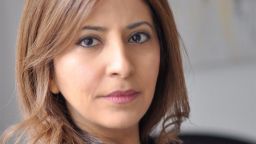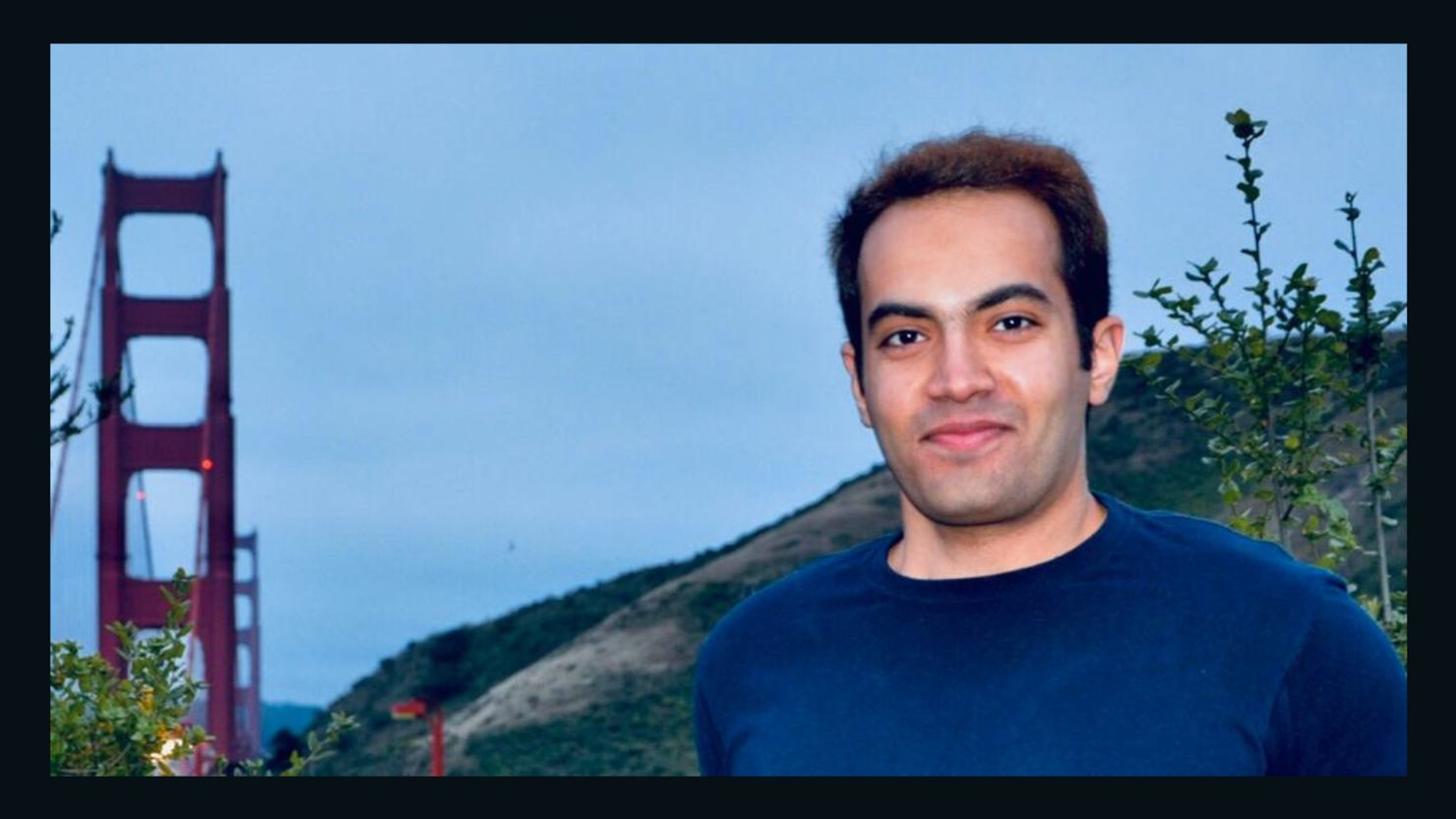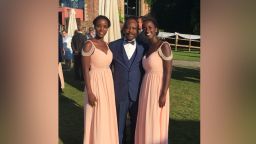Editor’s Note: Areej al-Sadhan is a Saudi-American human rights activist, American citizen and sister to Red Crescent humanitarian worker Abdulrahman al-Sadhan. The views expressed in this commentary are her own. View more opinion on CNN.
My brother Abdulrahman and I used to love to explore the Bay Area – hiking, cycling and, on occasion, walking across the Golden Gate Bridge together. Regardless of the activity, I knew I could count on my brother to make me laugh and vice versa. As I look back on those adventures now, I wonder when I will hear my brother’s laughter again.

I have not seen or spoken to my brother in more than four years. Several weeks ago, he spent his 39th birthday behind bars in Saudi Arabia. It was the fifth birthday that my family and I have spent separated from him – with little to no information about his health or wellbeing.
This year, my brother’s ongoing detention coincides with increased buzz around a normalization of US-Saudi relations, which I anticipate with both trepidation and hope. Recently, the White House announced President Joe Biden will visit Saudi Arabia in July, where he is expected to meet with Crown Prince Mohammed bin Salman (MBS). I balk at the thought of legitimizing a leader whose regime jails an innocent person like my brother, a former US resident, but I am holding out hope that such a meeting may offer an opportunity for my brother to be freed.
In March 2018, my brother, a humanitarian aid worker, disappeared from our lives. Abdul, as our family and friends call him, was arrested at his office at the Red Crescent Society in the capital Riyadh. A frequent commentator on human rights issues in Saudi Arabia, he was swept up in a crackdown on dissent after former Twitter employees, who prosecutors allege worked for the Saudi government, leaked his identity, among other anonymous accounts critical of the regime.
During the first two years of his detention, we knew nothing except the distressing details of abuse that trickled out from relatives of other prisoners. ALQST for Human Rights, a nongovernmental organization devoted to promoting human rights in Saudi Arabia, later received information from sources, who could not be named for safety concerns, indicating that my brother had indeed been subjected to severe torture. In a 2021 report, the NGO says Abdul was electrocuted, beaten, flogged, suspended in stress-positions, deprived of sleep, held in solitary confinement, insulted, humiliated and threatened with death.
In February last year, we were relieved when a family member in Riyadh finally received a call from Abdul, and we were elated when he told us he would soon be released after three years of no communication. But that brief moment of hope was crushed less than two months later when Abdul was instead brought to the Saudi Specialized Criminal Court and was tried on a list of trumped-up charges, including “preparing, storing and sending material prejudicial to public order and religious values,” as detailed by ALQST.
After a sham trial lacking due process and transparency, the Saudi court sentenced him to 20 years in prison plus a 20-year travel ban after his time served.
The US State Department has expressed serious concerns over the sentencing of my brother, while Speaker of the House Nancy Pelosi has described Abdul’s sentence as “a grave and appalling injustice.” But the fact that my brother continues to languish in prison today is a clear indication that Biden still needs to take concrete action to address Saudi human rights abuses immediately.
During his 2020 presidential campaign, Biden promised that human rights would be at the center of his foreign policy agenda, and that Saudi Arabia would be made a “pariah” for its numerous violations. Those promises gave us, and many families suffering like us, a glimmer of hope.
To be clear, the Saudi government not only jails peaceful activists like my brother, but, according to human rights groups, it is also one of the world’s leading executioners, as well as jailer of journalists. According to Freedom House, a nonprofit research organization, its acts of transnational repression are a threat to global security and human rights – including my own. Simply for writing this article, I am likely to be harassed and threatened by those aligned with the Saudi state.
As an American who, like many, was inspired by Biden’s stated commitment to curtailing human rights abuses around the world, where does a potential warming of relations with Saudi Arabia leave me? And where does it leave the many other families like ours, who have a loved one wrongfully detained in Saudi prisons?
Biden now has a choice. Though he has denied that energy price concerns were the catalyst for this trip, the visit coincides with historically high prices for gas and oil. The President can prioritize these concerns, which aren’t guaranteed to be addressed, over his commitment to human rights, or he can use this opportunity to ask for more from his Saudi counterpart, who undoubtedly sees this meeting as critical to legitimizing his image as a “reformer” on the world stage.
For the last several years, MBS has been trying hard to whitewash his image and that of the kingdom by hosting entertainers and sports events and advertising false promises of reform. The Crown Prince’s continuing attempts to change his image offer Biden a rare opening to insist on my brother’s release – and the release of all other political prisoners. Ideally, Biden should make this ask ahead of his actual visit. If MBS complies, this will offer a political win for both leaders.
Alternatively, upon landing in Saudi Arabia, Biden should make clear to the regime that as the US President, his job is to look after the safety and security of all American families – including our own. Abdul is the son and brother of US citizens, and we deserve our president’s assistance. Biden can then reference Abdul’s name and remind Saudi leadership of the stakes of this situation.
Like so many Americans, I felt hope when Biden promised to change the US approach to human rights in Saudi Arabia. I still am hopeful that Biden will maintain that commitment and demand my brother be released. And maybe next year my family will finally have the chance to celebrate Abdul’s birthday with him in person.


